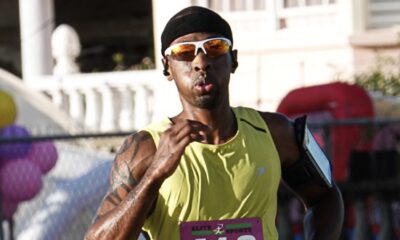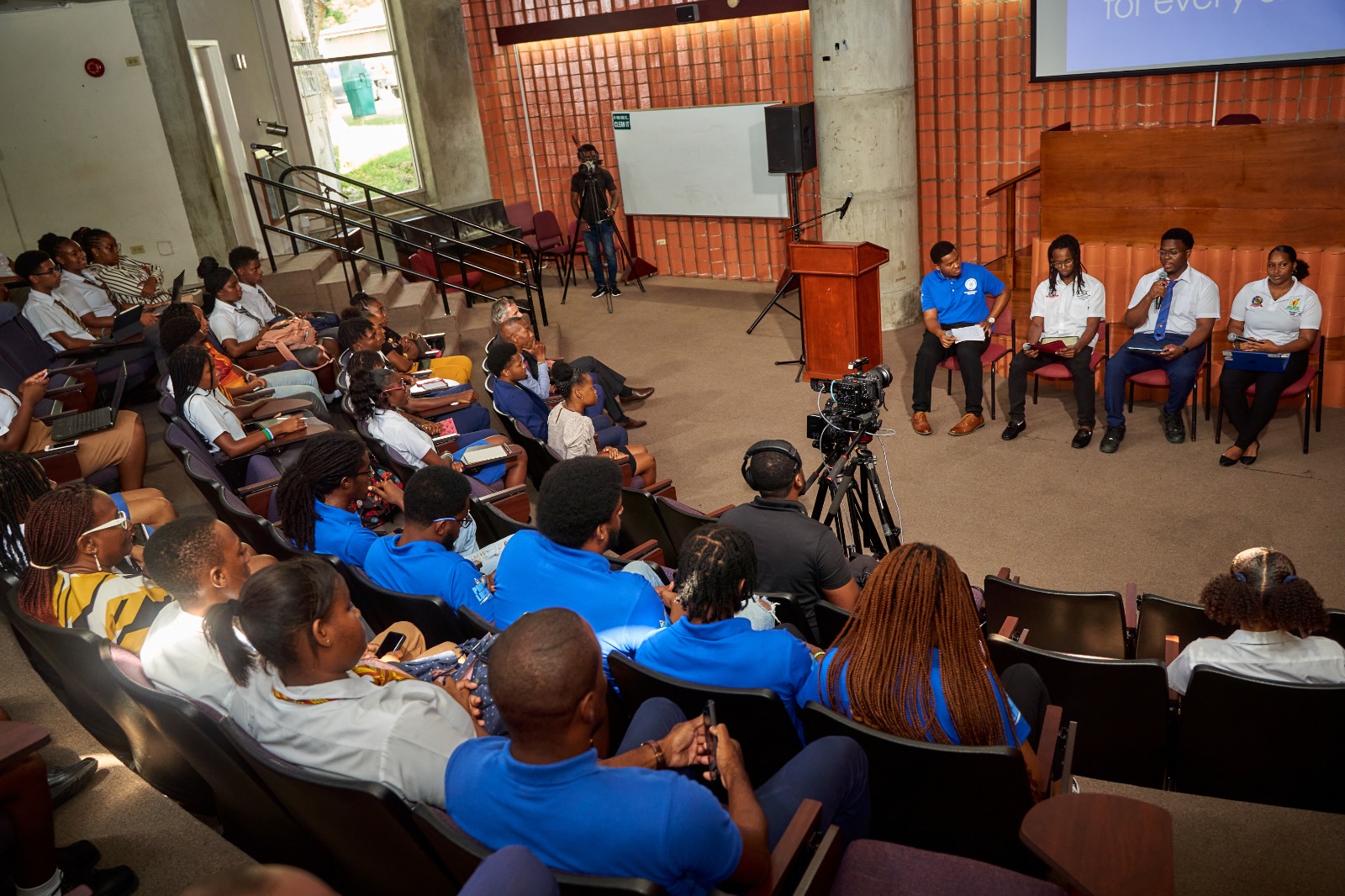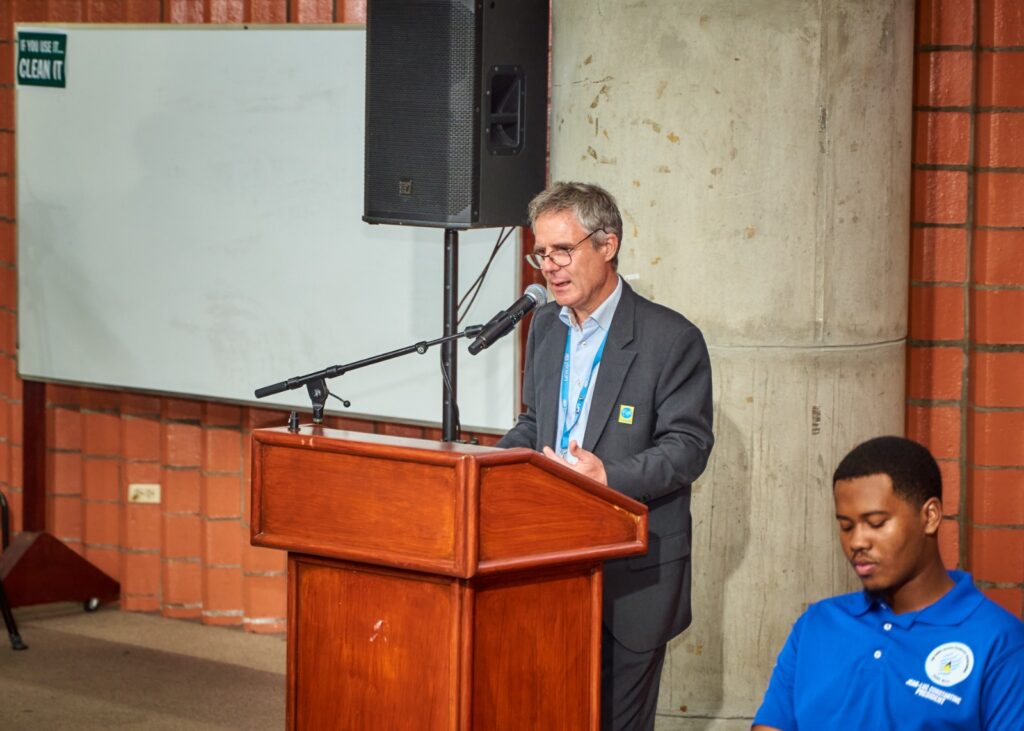Canteen concessionaires are an integral part of the growth and development of this country’s children.
Chief Education Officer, Dr. Ramona Archer-Bradshaw, expressed this view recently at a special ceremony held in honour of canteen concessionaires at the Savannah Hotel, Hastings, Christ Church.
Dr. Archer-Bradshaw said canteen concessionaires are necessary to the overall well-being of the nation’s children.
“By aligning your offerings with the guidelines of the policy, you help to create an environment where students can thrive, physically, mentally, and behaviourally. It means that what you do goes beyond making a dollar; you are making an impact, a positive impact, on our children’s lives.
“It is against this backdrop that I encourage you to continue innovating and exploring new ways to make healthy foods, not making them just accessible, but also making them enjoyable for our students. Remember, the choices that you make today will have a lasting impact on our children and ultimately our community, in line with our shared commitment to this cause,” she urged.
The Chief Education Officer acknowledged the role that canteen concessionaires play in supporting the Barbados School Nutrition Policy.
She stated that the commitment demonstrated in providing nutritious and balanced meals in schools to support the health and well-being of children has been nothing short of commendable.
“We all know that change is not easy. Nevertheless, you are willing to put your hands to the plough for the benefit of our children,” she told the concessionaires.
Dr. Archer-Bradshaw also commended the Ministry of Health and Wellness for being the driving force behind the implementation of the Barbados School Nutrition Policy.
“They were the ones who spearheaded the development of the Barbados School Nutrition Policy…. I know my colleague, CMO Kenneth George, played a role in that as well, and this policy focuses on creating a healthy food and physical activity environment for our students so that every single student can reach his or her full potential.”
She stated that the policy recognises that healthy nutrition is fundamental to academic success and overall physical health, but noted, however, that the effectiveness of the policy relies heavily on the collaboration and the support of all stakeholders and all canteen concessionaires, as the providers of meals and snacks in the schools across the island.
Addressing the concessionaires, she told them that they have the “unique opportunity to influence the dietary choices of our children”.
“Every day, some of our students look to you for lunches in the canteen and the options that you provide can either support their health or well-being or be detrimental to their health and well-being. By offering healthy, appealing, and diverse food choices, you can contribute significantly to fostering an environment where students develop good eating habits and where good nutrition is the norm and not the exception,” she stressed.
The Education Chief also said that they are teachers or educators in their own right and that they have the prime opportunity to introduce students to a variety of healthy foods, encourage them to make better food choices later on in life and instill habits that will carry them into adulthood.
“When students are provided with these nutritious meals, they’re more likely to be settled, they’re more likely to be focused and ready to engage with their schoolwork, and they will have the energy to participate in physical activities,” she told the concessionaires.
Dr. Archer-Bradshaw emphasised that the continued support of students as the Barbados School Nutrition Policy is implemented helps to combat depressing health issues that young people face, such as obesity and related illnesses.
The Education Chief also lauded the support of the Pan American Health Organization, which has offered a prestigious reward to the top three primary schools that can demonstrate their efforts in establishing a safe food and physical activity environment for their students by the end of this term.
These schools are required to submit a report detailing the initiatives that they have implemented to foster this healthy food and physical activity environment, while the Barbados School Nutrition Policy and Prevention Committee, will provide the specific criteria for evaluation to each primary school.
“I ask all of you here to make a commitment. Let us continue to make a positive difference in the lives of our students. As I always say in my borrowed quote, if we don’t take care of our children’s wellness, we are going to have to take care of their illness. Let us work together to take care of our children’s wellness,” Dr. Ramona Bradshaw urged. (PR/GIS)

 Features3 weeks ago
Features3 weeks ago
 Sports3 weeks ago
Sports3 weeks ago
 Caribbean region2 weeks ago
Caribbean region2 weeks ago
 Local2 weeks ago
Local2 weeks ago
 Tourism4 weeks ago
Tourism4 weeks ago
 International3 weeks ago
International3 weeks ago
 Sports3 weeks ago
Sports3 weeks ago
 Agriculture3 weeks ago
Agriculture3 weeks ago























